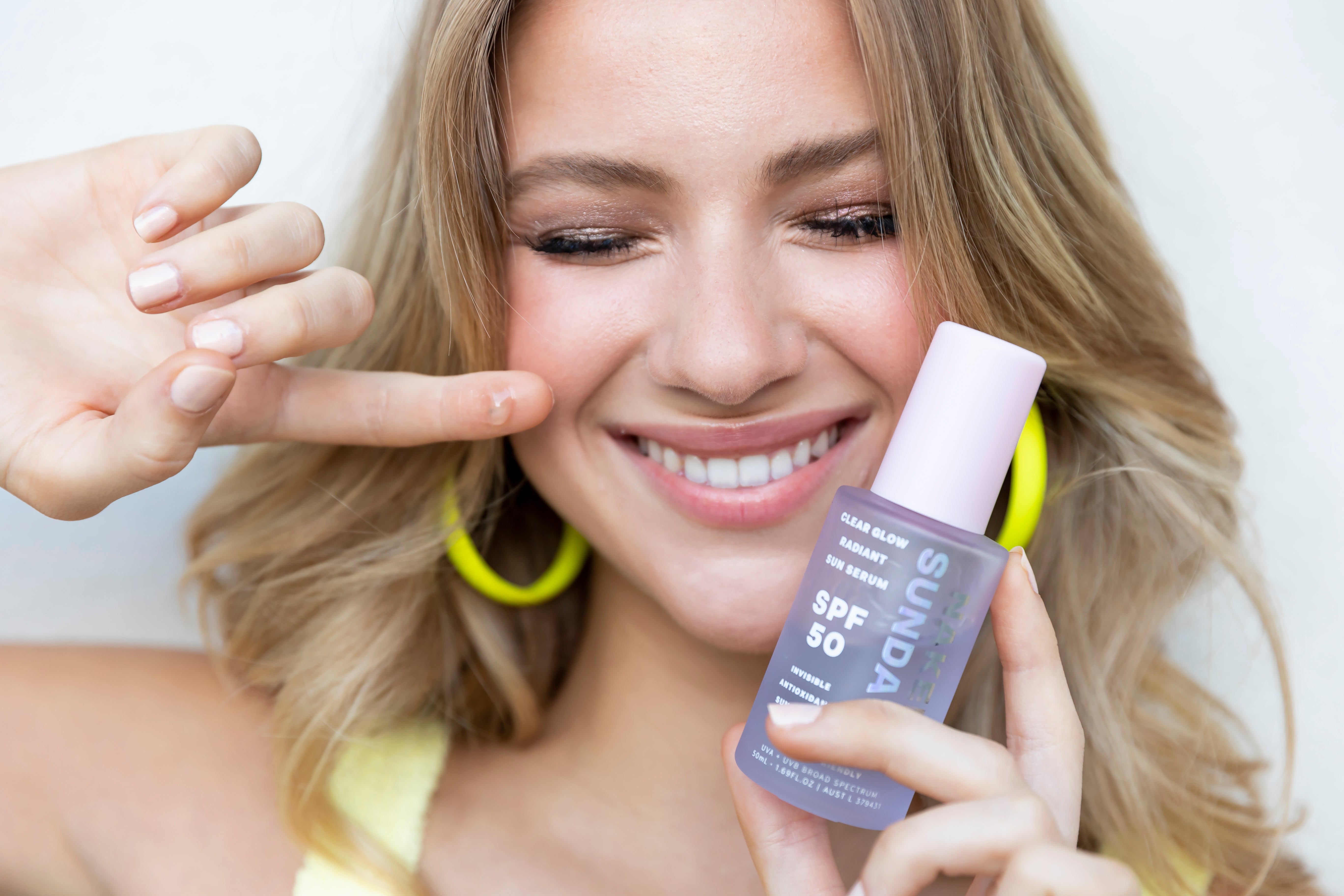While many of us know how crucial sunscreen is to protecting your skin from the sun’s harmful rays (not to mention it’s the best anti-ageing skincare you can get!), all of the numbers that come a long with it can get a tad bit confusing.
So, we’re settling the debate once and for all!
First up, what does the SPF rating mean?
SPF stands for ‘sun protection factor’ and the number beside it is a measure of how much protection the sunscreen is giving your skin from UV damage, or in other words, sunburn. The number tells you how long it will take UV rays to cause skin to burn with protection versus without. So, if it takes 500 seconds for skin protected by sunscreen to burn, and only 10 seconds for unprotected skin to burn, the rating is 500/10, which is SPF 50.
If you see a + next to the SPF rating (like on our cult favourite Hydrating Glow Mist and Collagen Glow Creme) it indicates the SPF rating is actually higher than the number listed and must provide at least SPF 60 in testing.
What’s super important to note about SPF ratings is that they’re tested based on proper application (and reapplication!), so it’s absolutely crucial that you apply your sunscreen according to its instructions, which according to the TGA, is every 2 hours at least.
Now for the main event; does SPF 30 stack up to SPF 50+?
Sunscreens work by filtering the UVA and UVB before they reach the skin. The active ingredients degrade over time with sun exposure, hence using the time it takes your skin to burn as the measure of protection.
To get specific, SPF 30 filters 96.7% of UVB while SPF 50+ filters 98% of UVB. While the difference may seem small, SPF50+ is letting through just 2% of radiation compared to SPF 30 that’s lets through 3.3%, a little under double the amount!
And, a quick word on chemical and minerals sunscreens; while the way they filter UVA and UVB rays is a little different, how much is still consistent with the SPF rating. So, a chemical SPF 50+ sunscreen like the Clear Glow Radiant Sunscreen Serum will give you the same amount of protection as a mineral SPF 50+ sunscreen like the Collagen Glow 100% Mineral Perfecting Priming Lotion.
Why are Australian SPF ratings different to overseas products?
Australia has a notoriously harsh climate that doesn’t pull any punches! So we have firm regulations in place to ensure every SPF product sold on Aussie shores is up for the fight. In Australia, sunscreen products, along with other products such as vitamins, medicines and some skincare, are regulated by the Therapeutic Goods Administration (TGA) who follow super strict guidelines to decide what is, and isn’t, able to be sold.
And they don’t just look at Aussies brands. Any products that fall into the therapeutic goods category i.e. sunscreen, from both Australian and International brands, are governed by the same regulations. It often means that overseas sunscreens aren’t sold in Australia and some products that are marketed with SPF in other countries won’t have any SPF rating listed when sold in Australia because they don’t meet our high standards of protection.
So, is SPF 50 better than SPF 30?
At the end of the day, the best sunscreen is always going to be the one you actually wear, and it doesn’t hurt if you love wearing it! That’s why we put so much effort into creating easy to use, lightweight and comfortable to wear SPFs that slip seamlessly into your skincare and makeup routines for daily use.
In saying that, we know that more is certainly more when it comes to sun protection so choosing the highest level of protection possible simply makes sense. All of our Naked Sundays products are at least SPF 50, with some cheeky favourites clocking in at SPF 50+, the highest rating possible in Australia, so you can be assured we got your covered!



Leave a comment